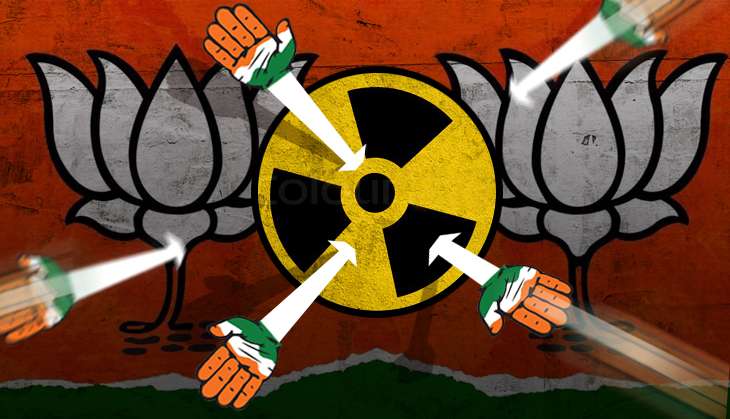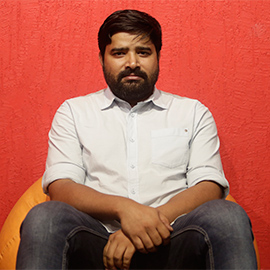Congress to PM: explain why India failed to become NSG member

- India has failed to acquire membership of the exclusive Nuclear Suppliers Group
- China blocked India\'s membership request, because the latter is not a signatory to the Non-Proliferation Treaty
- The Congress has called it a \'failure of the PM\'s personalised diplomacy\', and demanded an explanation
- It has also slammed External Affairs Minister Sushma Swaraj\'s statement for \'equating\' India and Pakistan
After India failed to acquire membership of the Nuclear Suppliers Group (NSG), the Congress called it a huge diplomatic letdown for the country.
The primary Opposition party said it was disappointed with the outcome of the plenary held in Seoul, South Korea, and sought an explanation from Prime Minister Narendra Modi about what went wrong.
Also read- What is the Nuclear Suppliers Group and why does India want to be a member?
Ire at Swaraj's statement
The Congress also asked the government to clarify why India dropped its objections to Pakistan's deplorable report on nuclear proliferation. Union Minister for External Affairs, Sushma Swaraj, had stated that "India won't protest the entry of any nation into the NSG, but it does want applications to be considered on merit".
Reacting to this statement, Congress leader Prithviraj Chavan said the minister's reaction was 'absolutely shocking'.
Chavan, the former Maharashtra Chief Minister, was a crucial part of the UPA government's negotiations with the United States, which eventually led to the 123 Agreement, or the Indo-US Nuclear Deal.
He said: "The Congress would vehemently oppose the equating of India and Pakistan by the Indian Foreign Minister. Pakistan's record of non-proliferation is deplorable, particularly what Dr AQ Khan did to proliferate the nuclear technology to rogue states, which is all well known. With this background, for India to say that we have no objection to Pakistan being an NSG member is not acceptable at all."
China flexes its muscles
Despite the US aggressively pushing India's case, China continued to flex its muscles, unlike in 2008, when it backed the 123 Agreement after last-minute negotiations. For the 123 Agreement, India was granted an exemption by the NSG.
Also read- US backs India as China opposes entry to Nuclear Suppliers Group
In Seoul, China blocked India's entry to the NSG because the latter hasn't signed the Nuclear Non-Proliferation Treaty (NPT). India is against such a move.
Ironically, Switzerland reportedly backed China on this issue, despite its assurances to PM Modi on his previous visit to the country.
MEA spokesperson Vikas Swarup said it was suggested that India's participation in the NSG required it to join the NPT, and India's stand was well-known.
"But let me underline that in September 2008, the NSG itself addressed this issue. Paragraph 1 (a) of the September 2008 decision states that the decision on India contributes to the 'widest possible implementation of the provisions and objectives of the Treaty on the Non-Proliferation of Nuclear Weapons'. There is thus no contradiction between the NPT and India's closer engagement with the NSG," Swarup added.
The Indian contingent blamed China for the failure of the country's bid, despite the PM holding a 45-minute long meeting with Chinese premier Xi Jinping in Tashkent, Uzbekistan. The meeting was held on the sidelines of the Shanghai Cooperation Organisation (SCO) meet in the Uzbek capital.
Reacting to China's persistence to not allow India's entry into the elite group, Swarup said: "We understand that despite procedural hurdles persistently raised by one country, a three-hour long discussion took place last night on the issue of future participation in the NSG. An overwhelming number of those who took the floor supported India's membership and appraised India's application positively."
Failure of personalised diplomacy
According to Congress's Chavan, in 2008, a lot of diplomatic activity had transpired, which led to the historic NSG decision to grant India an unconditional one-time waiver to start nuclear commerce with US and the rest of the world.
Also read- Dangerous folly: the case against India's bid for an NSG seat
"It actively made redundant the nuclear apartheid and allowed India to import much-needed nuclear fuel to continue our Nuclear Energy Programme," he said.
Chavan called the result of the Seoul plenary a "failure of the Prime Minister's personalised diplomacy".
On being asked if the foreign minister or the foreign secretary should take responsibility for this, Chavan said it was a serious matter, and that "first of all, the Prime Minister should clarify. It has been a colossal failure".
Even Delhi Chief Minister Arvind Kejriwal called it a failure of Modi's diplomacy and said, "For its defeat on the NSG issue, shouldn't the PMO be questioned?"
No mention of membership requests
Meanwhile, the NSG's official statement after the plenary session avoided any mention of membership applications from any country, including India. This clearly indicated that the elite group of nations couldn't decide whether to allow entry of nations which have not signed the NPT.
India had applied for NSG membership on 12 May, though negotiations have been going on since 2008, when the UPA government pushed for India's inclusion into the group.
But China opposed India's claim, mentioning that allowing non-signatories of the NPT will lead to collapse of the international non-proliferation order.
Edited by Shreyas Sharma
More in Catch
18 years after Pokharan, security eludes India and dangers have become more serious
On Fukushima anniversary, can we forget the dangers of Kudankulam?
India unprepared: what happens in case of a nuclear Bhopal?
First published: 24 June 2016, 11:12 IST






![BJP's Kapil Mishra recreates Shankar Mahadevan’s ‘Breathless’ song to highlight Delhi pollution [WATCH] BJP's Kapil Mishra recreates Shankar Mahadevan’s ‘Breathless’ song to highlight Delhi pollution [WATCH]](https://images.catchnews.com/upload/2022/11/03/kapil-mishra_240884_300x172.png)

![Anupam Kher shares pictures of his toned body on 67th birthday [MUST SEE] Anupam Kher shares pictures of his toned body on 67th birthday [MUST SEE]](https://images.catchnews.com/upload/2022/03/07/Anupam_kher_231145_300x172.jpg)






